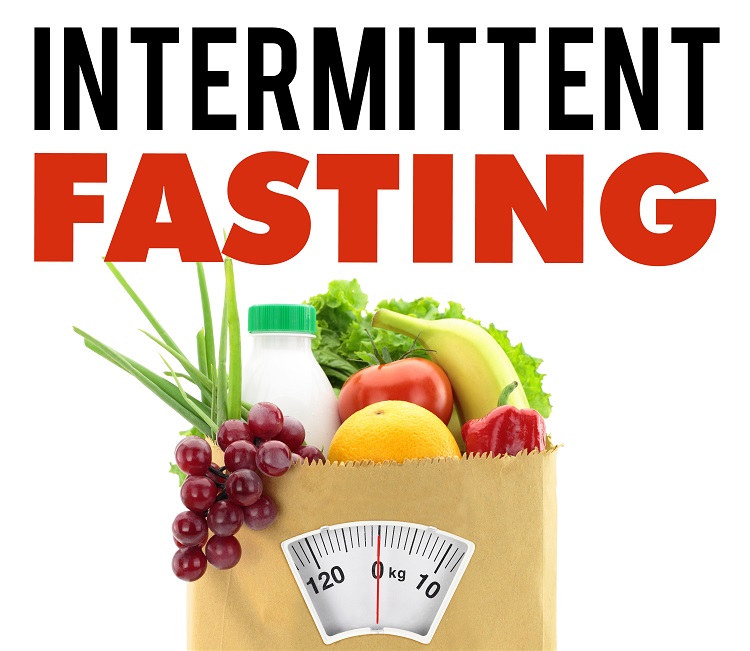Intermittent fasting is the period between fasting and eating which tells you the times when you should eat food. So it is an eating pattern rather than a diet. There are different intermittent fasting pattern which involves 16-hour or 24-hours of fasting twice a week.
Fasting has been a part of humans throughout the evolution because in ancient times they either don’t find food or don’t have refrigerators to store them in. So they got adapted to function for long duration of time without food.
It is healthy to fast from time to time rather than eating 3-4 meals in a day. There are religious reasons for fasting or for fitness and better health.
What to eat in the eating slots and what to avoid during fasting period
- During eating slots: Eat food that satisfies your hunger and keeps your taste bud active. But make sure you don’t consume too much of it. You should also avoid the food you are allergic to.
- During fasting period: Woman should take 500 calories and man should take 600 calories per day. You should consume foods that are high in fiber and which keeps you full. You can have coconut water, pressed juice, vegetable salad with a little lime juice. I eat lots of protein from chicken breast, fish, eggs, beef, vegetables, fruits and nuts. I also keep sipping on detox water which is made from cucumber, kiwi, watermelon and add a pinch of salt to give your body the essential electrolytes and micronutrients. I would suggest to not use mint leaves as they increase hunger.
Effects of intermittent fasting on exercise
During the initial phase when the body is adjusting to the new eating cycle, people notice that their ability to exercise is affected. But this is temporary. Once the body adjusts to the new schedule, the individual does not feel any effect of fasting on their work out routine.
If you are worried about losing muscles, you should make sure you take enough proteins during the eating slots and you should indulge into resistance training. When you have your protein levels up there are less chances of muscle loss.
Best part of intermittent fasting
I like intermittent fasting is because I make sure I eat healthier food due to short eating time frames. I can only have two meals in the day so if I eat some junk food then my diet is 50% bad for the day.
Another benefit is it helps to make my day simpler. I spend less time in thinking what should I eat or cook and spend more time eating.
Methods for Intermittent fasting
There are several ways of doing intermittent fasting. They involve splitting the whole day or week into fasting and eating slots. When you are in a fasting period you should eat nothing or very little.
The most popular intermittent fasting methods are:
- Eat-Stop-Eat: In this method you fast for 24 hours, once or twice a week. This can be not eating from lunch one day to launch another day or dinner one day to dinner another day.
- The 16/8 method: In this method, you skip your breakfast and limit your daily eating time to 8 hours like 1-9 pm and you fast for the next 16 hours. This method is also called as Leangains protocol.
- The 5:2 diet: This method involves consuming only 500-600 calories on 2 separate days of the week and eat your normal diet on the rest 5 days of the week.
All of these methods reduce your calorie intake which leads to weight loss. But you have to make sure you don’t eat too much during your eating durations.
From the above 3 methods, 16/8 method is the most popular because the majority of people have found it to be the simplest and easiest method to follow.
If you find 16/8 method easy and you feel good when you are fasting, then you can move to a more advanced fasting method like 24-hour fasting once or twice a week or following 5:2 diet and eating 500-600 calories 1-2 days a week.
Alternatively you can fast when you can, by skipping meals from duration to duration. It is not necessary to follow a planned fasting schedule. So try out different approaches and figure which one is the best for you.
Effect of Intermittent fasting on your cells and hormones
Fasting affects the cells of your body. Your body starts adjusting the hormone levels to access the stored fats. It changes the genes and initiates several repair processes in the body.
Some of the body changes due to fasting are:
- Human Growth Hormone (HGH): There is a spike in levels of growth hormones which increasing like 5-fold. This helps to lose fat and gain muscles.
- Insulin: There is a drastic drop in insulin levels which helps to use the stored body fat.
- Cellular repair: During fasting, the cells are undergoing repair processes in the cells where the cells digest and discard the old and dysfunctional proteins that are built up in the cells.
- Gene expression: The functioning of the genes are altered which are related to their longevity and protection against disease.
How it is important in weight loss
One of the most popular reasons for intermittent fasting is for weight loss. It reduces your calorie intake as you reduce the number of meals you eat in a day.
This helps to increase growth hormone levels, reduce insulin, increases burning of fat hormone noradrenaline. Changes in hormone levels boost the metabolic rate up to 14%.
You need to make sure you do not eat too much during your eating periods because intermittent fasting helps in weight loss because it reduces the calorie intake.
Who should avoid it?
Fasting is not everyone’s cup of tea. People who are underweight or who have a history of eating disorders should never fast without consulting a health specialist.
There are a lot of studies that show that intermittent fasting is not as beneficial to women as it is for men. There was a study which showed improvement in insulin levels in men but worsening in women.
There are several reports that say menstrual periods in women stopped when they were following intermittent fasting and it went back to normal when they go back to their normal diet.
So a woman should be careful and should immediately stop when they have problems like amenorrhea (absence of menstruation) or if you have issues with fertility or are trying to conceive. This is also a very bad idea when you are pregnant or breastfeeding.
Safety and side effects
One of the major side effects is hunger.
You will start to feel weak and your brain will not function at his usual levels. These are temporary effects which will be seen till your body is adapting to the new eating pattern.
If you have any kind of medical condition it is mandatory to consult your doctor before trying these methods of fasting.
The medical conditions where you should think twice before following intermittent fasting are:
- Diabetes
- Fluctuations is your blood glucose levels
- Low blood pressure
- On medications
- Underweight
- History with eating disorders
- Women who are trying to conceive
- Woman with amenorrhea
- Women who are pregnant or breastfeeding.
Should you give Intermittent fasting a try?
If you are looking to improve your health, I would say you should definitely give it a try. But if you are not a fan of fasting you can pass it and continue with what works well for you. The best diet for you will be the one that you can stick to for a long time.
So if you can follow it for a long time go for it. Intermittent fasting is not great for everyone so you can find out to which group you belong to by simply trying out. If you feel good while fasting than it is an excellent way to lose weight and improve your health.





